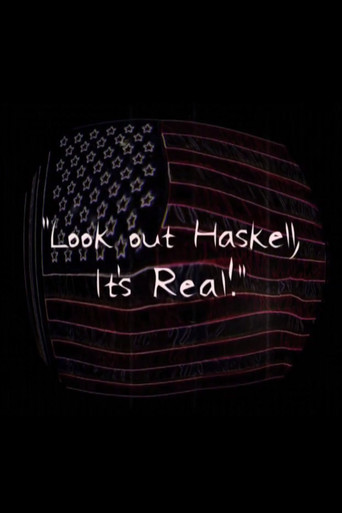bob the moo
In the mid-late 1960's, Haskell Wexler is given the green light to make a dramatic film. However he decides to make something more interesting and slowly twists it into a film that is of greater interest to him. As he makes his personal film about the conscience of a cameraman faced with things he cannot be neutral about he finds himself drawn into a difficult shoot and eventually into the middle of real riot outside the 1968 National Democratic Conference in Chicago.Having just watched the film Medium Cool, I got the video tape where I had recorded this 'making of' film and felt I could now watch it without risk of spoiling the film (of course I didn't realize that it wouldn't have a narrative to spoil!). The film's main focus is obviously the very well known riots that Wexler and his colleagues found themselves caught up in the middle of a real riot. This event takes up the majority of the film but is not the only interesting aspect of the making of the film – although it is funny to hear Wexler say that he was worried he was going to have to hire actors to stage some minor trouble and edit it into the protest scene, a concern that wasn't in his mind as he got hit by teargas! The events around the riot are very interesting and it throws up the odd interesting story but to be honest the film itself was a record of this real event and the documentary doesn't add a great deal to that. But personal memories and extra stories all make it more interesting – including the fact that it was Warren Beatty that got the Wexler crew into the Democratic Conference.What it does do very well is add to the viewing of the film by putting a lot of flesh on other things. For example I considered the narrative of the film to be weak but here they actually manage to make the film make more sense by opening up the things such as the poor boy, the campaigning factory worker and also putting the period of the film in a great deal more context for someone like me who was not born at the time of the film's production. The contributions are very interesting and from a range of actors, crew, historians and of course Wexler himself.Overall this is a good documentary but only if you have seen the film already – without seeing it this won't work as well even if some other 'making of' films can work as general interest features. The film obviously focuses on the real riot that the crew found itself caught up in but, for me, it's greater value was to open up the actual film a lot more and help me not only understand the context of the period in terms of national mood and atmosphere but also in explaining a lot about some of the 'real' characters that the film used as part of it's imperfect narrative.
